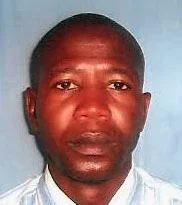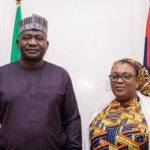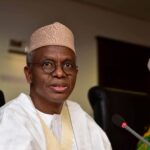Afolabio Gambari
In being fair, all events that occur in our country deserve a mention – no matter whether they are benign or banal, or indeed whether they are major or minor. It is not for today but for the future. Besides, it is even more important to have the events highlighted, lest they pass for “no event” to some people who have their own definition of what an event really is, as different from how it is to others.
Here we go…
Notwithstanding it was well reported that the Katsina State government had sought a truce with bandits that made the state a haven in recent years, there was still the temptation to wave it off as mere rumour or, at best, just another round of comedy to ease the tension in the land. No, it’s no rumour or comedy, the state Governor, Dikko Umaru Radda, seemed to say as he “cleared the air” on the development. He said after two years of “debate” on whether to talk with the bandits or not, a “peace deal” had now been reached with the infernal non-state actors, stressing that the deal “has restored peace” in four frontline local governments where the bandits had made life hell for the farming communities in the councils. Radda, who described the deal as a “locally made community peace initiative”, also said “negotiation is going on” with the bandits in two additional frontline local governments in the state. The governor would pump his chest in triumph over making hitherto complex issues of tackling insecurity in the state so simple, with this very serious indictment on security forces who have spent years in the state with so much public funds expended while purporting to seek a lasting solution to the banditry. But he cleverly avoided talking about the economic stagnation and youth unemployment that fueled the banditry in the first place. Hopefully, he knows that the mission is only half accomplished.
Hailing from the historical centre of commerce, Kano, surely places Senator Rabiu Musa Kwankwaso in very good standing in terms of trading skills. According to various reports, the former Kano State governor and leader of the New Nigeria People’s Party (NNPP) declared that he and his supporters are ready to join the ruling All Progressives Congress (APC); but certainly not for free. It is trite that Kwankwaso has the massive votes of Kano State literally in his pocket, and he would give the votes to any willing outsider only if the price is right. He argued that “politics is about negotiation, trust and mutual benefit”, a strong message to the APC that it is cash-and-carry this time or nothing. Other arguments, like “we will not allow anyone to use us and later dump us because our people have suffered that in the past and we have learned our lessons”, are merely mechanical. The real message had been driven home. He nonetheless said “our people must be respected, carried along and given their rightful place”. But it takes no discerning mind to see clearly that “our people” represents himself as the chief trader. Whether he would be paid in part or in full, however, remains to be seen. But one thing is sure: he won’t be left empty-handed.
At 91, Nobel Laureate Prof Wole Soyinka stands incredibly agile and sharp-witted. Years of rigorous activities in scholarship and activism have done little or nothing to affect his carriage negatively. Never one to deprive himself of any public appearance on offer, the nonagenarian attended the reopening and re-dedication of the refurbished National Theatre, Lagos, last week to behold the edifice named after him by President Bola Tinubu. He accepted the honour in full. However, he was quick to reflect on his avowed disdain for the appropriation of public monuments in Nigeria and confessed that naming him as “yet another appropriator” did not make him any happier. Very rare honesty there, isn’t it? Perhaps, as a way of still justifying Tinubu’s gesture, he said he had a “nostalgic connection” to the monument, especially its role as a key venue during FESTAC ’77 and regaled the crowd with how he had felt low at seeing the building deteriorate over the years. But feeling the pangs of conscience at witnessing the theatre being named after him was telling indeed. The man of words uttered: “If eating one’s word produces a morsel like this, then it’s a very tasty set of words.” Couldn’t he still have politely told Mr President before D-day, ‘thank you, brother Bola, but honesty demands that I don’t have the theatre named after me’?
Former chief security officer of Kwara State, Dr. Bukola Saraki, has lately served a notice on the incumbent Chief Security Officer of the state, Governor AbdulRahman AbdulRazaq, to “live up” to his responsibility and take “decisive action” to curb the worsening insecurity in the state. Saraki, whose party, People’s Democratic Party (PDP), was so thoroughly decisioned by the people of the state in 2019 via a hurricane-like movement had virtually disappeared from the scene ever since while trying hard to re-launch amidst threats of disintegration that faced the party in the state, had suddenly resurfaced in style, armed with the weapon to bring Abdulrazaq and his All Progressives Congress (APC) to the cleaners – no thanks to deteriorating security situation in the state. “It is laughable that a state governor whose people were massacred in Oke Ode waited five days before visiting the community,” a statement issued by Saraki’s media aide, Yusuph Olaniyonu, said. The statement rubbed it in: “Instead of focusing on security, he found time to attend a project commissioned in another state while his own people were being slaughtered.”
Saraki should have stopped there and would have earned his applause. But he unwittingly gave himself away, saying his statement was “not political but only for the safety and well-being of the people”. No, Sai Bukky sir. Your effort is calculated and strategic, aimed at re-inventing your battered party in the state, and this time presents the best chance for the endeavour.
Everyone knows that former vice president, Alhaji Atiku Abubakar, weighing his political twilight, knows he has his last chance at realising his presidential ambition in 2027, or he would rue his blown chance of 2007 till he breathes his last. So, not a few had disbelieved him when he said on a BBC Hausa service interview on October 2 that he was ready to step down for a younger candidate among the power jostlers in the African Democratic Congress (ADC) ahead of the 2027 general election. No surprise, therefore, when a few hours later, Atiku’s media aide, Paul Ibe, issued a statement, saying the English translation of what his principal said in the broadcast interview was “misrepresented” and that “at no point did the former vice president expressly state, suggest or even imply that he intends to step down for anyone”. In summary, Atiku, at nearly 79 years old, isn’t ready to retire from active politics. Oh well.







